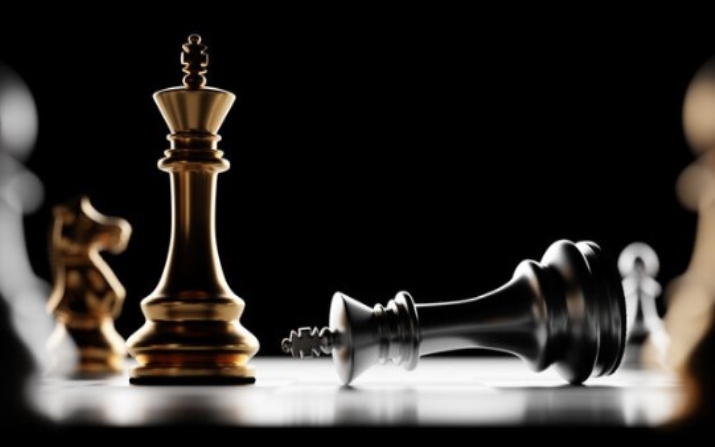Almost everyone has experienced the frustration of being so close to winning a game of chess, but has not been able to achieve it. The grand finale call for a magnificent checkmate, remains out of reach even for the skilled players. No cause for worry, fellow chess lovers! In this guide, we bring forth some Tips and Tricks for chess that will breathe new life into your performance whilst bestowing upon your opponent a ‘’check’’ in passing (perhaps a chuckle).
1. CONTROL THE CENTRE
Why is controlling the centre so important in chess? Think of the board as a battlefield. By controlling the central squares (d4, d5, e4, e5), you dominate the most crucial areas, giving your pieces more freedom to manoeuvre and exert influence.
- Tip: Position your pawns and pieces to dominate these central squares early in the game. Openings involving 1. e4 and 1. d4 are preferred because they take control of the centre at once.” At the same time keep your eye on the digital chess clock to prevent any delays.
2. DEVELOP YOUR PIECES EARLY
In development, the idea is to advance your pieces (knights, bishops, queen, and rooks) from their starting positions on inactive squares to active ones. You can make coordinated attacks faster if you develop as fast as possible; you can also protect against your opponent’s threats.
- Tip: Before moving the queen, one should aim at developing knights and then bishops. For White, knights are best placed on c3 and f3 while for Black on c6 and f6. Also, bishops should focus on controlling long diagonals that lead into enemy territory.
3. PRIORITISE KING SAFETY
Have you lost a game because your king was left exposed? Why not avoid this situation by ensuring the safety of your king so that it cannot be captured easily.
- Tip:Castle early—at least by the tenth move in most cases. When you castle, apart from your king being in safe hands, the rooks are connected in the process so that they can give each other support when necessary and control essential files.
4. UNDERSTAND PAWN STRUCTURE
Even though pawns may appear unimportant, they play a crucial role in any strategy. Once you understand your pawn structure, you’ll find it easier to come up with a way of either attacking or defending.
- Tip: Stay away from making “isolated pawns” (pawns not adjacent to any similar pawns on neighbouring files) or “double pawns” (two pawns of the same colour on the same file). Your adversary will use these places against you.
5. LEARN TO CALCULATE VARIATIONS
Thinking ahead and visualising potential moves are two processes that comprise Calculation which enable players to foresee the consequences of their actions and plan several moves ahead.
- Tip: Work on solving chess puzzles and exercises pertaining to tactics. They will help you improve your calculation skills and pattern recognition abilities. Start from simple two-move combinations and then proceed gradually to more complicated situations.
6. DEVELOP A PLAN
How often do you find yourself making moves without a clear goal? Every move should be part of a larger strategy.
- Tip: In the middle game stage review where each piece is placed on the board and make a goal. Note your strong and weak points and those of the other player. Such activity may aim at attacking a vulnerable pawn, taking control over an open line or moving units into more powerful positions.
7. MASTER COMMON ENDGAMES
Games are either won or lost within the endgame stage. Knowing ways to turn a material advantage into a victory or save a draw when losing is key
- Tip: Get to know some elementary endgames first: king and pawn against king, king and rook versus king, and king and queen versus king. Mastering these basic situations gives grounds for more complicated endgames.
8. PRACTICE PATIENCE
Impatience can lead to hasty decisions and blunders. Chess is a game of patience and precision.
- Tip: Take your time to evaluate each move. Before making a move, check for possible threats and consider your opponent’s best response. Playing with a clear and calm mind helps in making better decisions.
9. STUDY CLASSIC GAMES
What better way to learn than from the masters themselves? Studying classic games gives you insight into successful strategies and tactics.
- Tip: Analyse games played by grandmasters. Pay attention to their opening choices, middle-game strategies, and endgame techniques. Books and online resources can provide annotated games with explanations of key moves and strategies.
10. KEEP A POSITIVE MINDSET
Chess can be mentally taxing, and maintaining a positive attitude is essential for long-term improvement.
- Tip: Treat every game as a learning opportunity, regardless of the outcome. Analyse your losses to understand your mistakes and celebrate your victories to boost confidence. Stay curious and enjoy the process of learning and improving.
CONCLUSION
Becoming good at chess takes effort because it comes about through thinking ahead tactically and practising as well as being open enough so that you can learn even when you win or lose. Employing these principles means that not only will one gain more insight into playing it but also become better at it overall. After all, being aware that all great players were once novices then every time someone sits behind a chessboard he should ask themselves these wordsides: In which way can I beat him now?.So when armed with these elements act!

